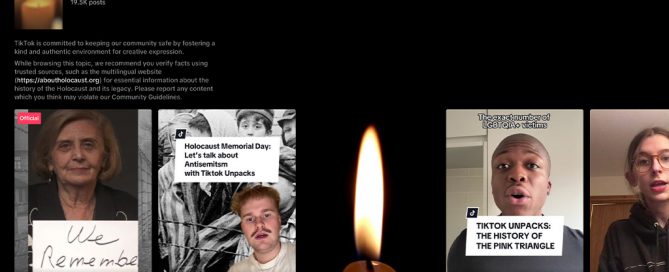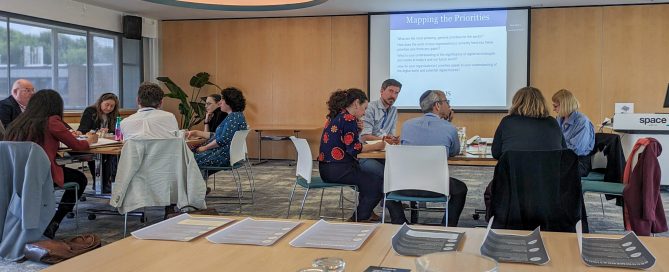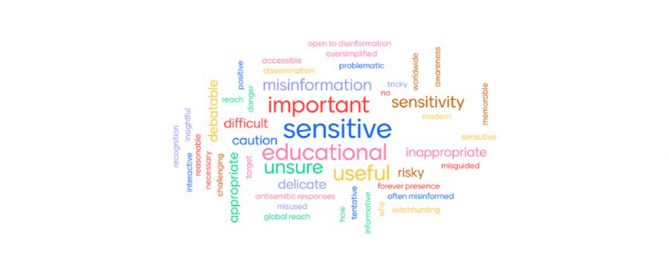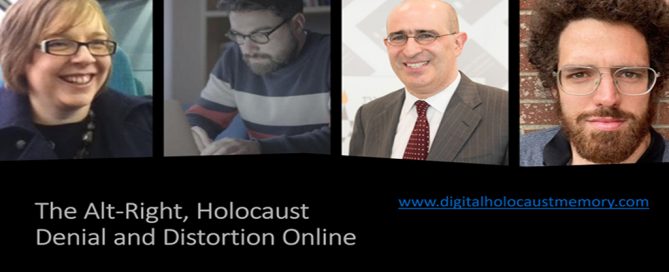TikTok and Holocaust Memory: Where Commemoration and Algorithmic Culture Collide
by Victoria Grace Richardson-Walden Our article ‘An Entangled Memoryscape: Holocaust Memory as Social Media’ was recently published in the academic journal Memory, Mind and Media. Here we summarise the key findings. The article written by myself and my colleague Dr Kate Marrison questions the uncritical acceptance across Holocaust Studies that there has been a paradigmatic shift from the ‘era of the witness’ (Wieviroka 2006) to the ‘era of the user’ (Hogervost 2020). Instead, it adopts a post-humanist approach, working with the writing of Karen Barad (2007) to argue that social media engagements with the Holocaust should be understood through the lens of entanglement. What this means is that social media is ‘socio-technical’ (van Dijck 2013) – any ‘agency’ (although we prefer Barad’s word ‘actancy’) involved in its creation involves a multitude of human and non-human actors in an ongoing, iterative process embedded in a variety of social contexts. This includes the corporate platforms, their algorithms and ideologies, the content creators, the platform itself, and the users who comment, like and otherwise interact with shared content. Furthermore, it means that social media does not just produce Holocaust memory, but that Holocaust memory content on these platforms has the potential to [...]



